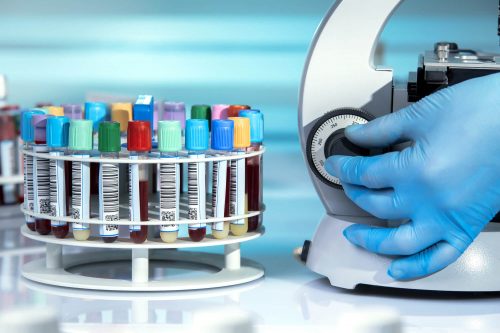 In the realm of scientific research, precision is paramount, and laboratory equipment calibration plays a vital role in ensuring accurate and reliable measurements. This blog post delves into the significance of laboratory equipment calibration, elucidating its importance, methods, and best practices to uphold precision and integrity in scientific experiments.
In the realm of scientific research, precision is paramount, and laboratory equipment calibration plays a vital role in ensuring accurate and reliable measurements. This blog post delves into the significance of laboratory equipment calibration, elucidating its importance, methods, and best practices to uphold precision and integrity in scientific experiments.
The Significance of Calibration in Scientific Research
Calibration is a process of verifying and adjusting the accuracy of scientific instruments to ensure consistent and trustworthy measurements. Understand why calibration is crucial in scientific research, how it impacts data quality, and the implications of using uncalibrated equipment on experimental results.
Types of Laboratory Equipment Requiring Calibration
Various types of laboratory equipment necessitate calibration to maintain accuracy and reliability. Explore common instruments that require calibration, such as balances, pipettes, pH meters, spectrophotometers, and temperature sensors, and learn about the critical role calibration plays in validating their performance.
Calibration Methods and Procedures
Gain insights into different calibration methods and procedures employed in laboratories to verify equipment accuracy. Discover techniques such as internal calibration, external calibration, calibration curves, and traceability to reference standards, and understand how these methods ensure precise and consistent measurements in scientific analyses.
Frequency of Calibration and Recalibration
Establishing a routine calibration schedule is essential for upholding measurement accuracy over time. Learn about the recommended frequency of calibration for different types of laboratory equipment, factors influencing recalibration intervals, and the importance of adhering to calibration schedules to maintain data integrity and experimental reproducibility.
RTD PT100: Precision in Temperature Measurement
The RTD PT100 sensor is crucial for precise temperature measurement in laboratories. With a 100-ohm platinum resistance at 0°C, this sensor provides unmatched accuracy and stability. Its inclusion in calibration improves the reliability of temperature-sensitive experiments, ensuring accurate and reproducible results. Calibration involves comparing with reference standards, emphasizing the link between accurate tools and precision in research.
Traceability and Standards Compliance
Maintaining traceability to recognized standards is integral to calibration validity and credibility. Explore the concept of traceability in calibration, the significance of using calibrated reference standards, and the importance of compliance with international metrology standards to ensure accuracy and consistency in measurements.
Calibration Best Practices and Quality Assurance
Adhering to calibration best practices is key to achieving reliable and precise measurement results. Delve into quality assurance protocols, documentation requirements, calibration certificates, and instrument labeling practices that contribute to effective calibration management and data traceability in laboratory settings.
Impact of Calibration on Experimental Outcomes
The accuracy of experimental outcomes hinges on the precision of laboratory equipment measurements. Understand how calibration influences experimental results, data reliability, and scientific conclusions, and explore real-world examples showcasing the transformative impact of accurate calibration on research findings and scientific discoveries.
Technological Advances in Calibration
Advancements in calibration technology have revolutionized the accuracy and efficiency of calibration processes. Learn about innovative calibration tools, software solutions, and automated calibration systems that streamline calibration procedures, enhance measurement accuracy, and reduce human errors in laboratory instrument calibration.
Continuous Training and Competence Development
Ensuring personnel competency in calibration practices is essential for maintaining measurement accuracy and integrity. Discover the importance of continuous training programs, competency assessments, and proficiency testing for laboratory staff engaged in calibration activities to uphold calibration excellence and data reliability.
Embrace the precision-driven world of laboratory equipment calibration to elevate the accuracy, reliability, and integrity of scientific research.
From understanding the significance of calibration and types of equipment requiring calibration to exploring calibration methods, standards compliance, best practices, and technological advancements, this blog post illuminates the critical role of calibration in achieving precision in scientific experiments.
Unlock the power of calibration excellence and embark on a journey toward precision-driven scientific discovery.






